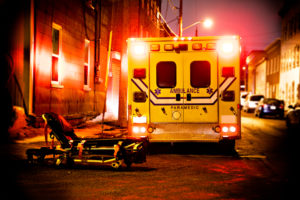As the weeks have started to pass on the horrific shooting at Stoneman Douglas High School in Parkland, Florida, we have seen a massive grass roots effort by the students themselves to strengthen school safety that is sweeping the nation, we have heard Presidential promises of common sense gun reforms, we have witnesses stunningly aggressive speeches from NRA leaders, and we have heard harsh criticism against the government agencies that were supposed to have prevented such tragedies in our schools. But one thing that has not been made public is what the victims’ recourse is. Who will be held accountable?
In order to answer that question, we have to step away from the court of public opinion and look at the court of law. An observer might believe that the Broward County Police Department should be held accountable because it did not act in response to concerns over the shooter; or the school official who waited outside the school should be held accountable for not doing his job; or some might even wish to blame the F.B.I. for overlooking reports about the shooter. Some may even wish to look at the gun manufacturer or the gun seller who allowed such a weapon of war to be purchased by the shooter. While those beliefs may appear to be obvious, there are massive legal hurdles that the victims of Stoneman Douglas will face, and, sadly, those hurdles are the same that preclude countless individuals from seeking their day in court. The highest hurdle of them all is known as The Public Duty Doctrine.
Each state has its own variation of the Public Duty Doctrine. This doctrine is essentially an immunity provision. In Maryland this doctrine provides “that a municipality’s duty to provide police protection ordinarily is one owed to the public-at-large and not to a specific person or class.” Williams v. Mayor & Baltimore, 359 Md. 101, 134 (2000), citing Kircher v. City of Jamestown, 74 N.Y.2d 251, 256, 543 N.E.2d 443, 445, 544 N.Y.S.2d 995 (1989). The doctrine in Maryland traces its origins back to the turn of the 19th Century: “In 1898, this Court first recognized the need to protect a law enforcement officer from civil liability where a negligence claim arose out of the judgment and discretion needed to perform that job properly.” Id. at 136, citing Cocking v. Wade, 87 Md. 529, 40 A. 104 (1898).
While theoretically this doctrine should only be a limited immunity provision, the application of the doctrine by the courts tends to fall on the side of applying the immunity. Recently, the case of Howard v. Blair Mill Affordable Associates, Inc., et al. was appealed to the Maryland Court of Special Appeals in order to challenge the application of the public duty doctrine. In Howard, Nicole Enoch was a 27-year-old female who was in an emergency and called 911. An officer was dispatched to her apartment building complex; however, when he found the front door of the complex to be locked, he simply decided not to enter and left. Ms. Enoch was later found deceased after having fallen from the roof of the building. While Ms. Enoch’s mother, Carolyn Howard, believes that the conduct of the officer fell outside the immunity provision, the trial court determined that the officer’s conduct was in fact protected under the public duty doctrine.
Florida also applies the public duty doctrine to the conduct of its government employees. “Central to the public-duty doctrine is the principle consistently applied by the courts that government liability may not be established unless there is a common law or statutory duty of care owed by the government to the individual rather than to the general public.” Manfre v. Shinkle, 184 So. 3d 641.
As time goes on we are sure to hear more stories and statistics that will demonstrate that the Stoneman Douglas shooting was a preventable tragedy, just as the passing of Nicole was. But for as sympathetic as lawmakers may appear, it would be shocking to see the Florida government not rely upon the public duty doctrine to escape being held liable for the conduct of any of its employees. If these families do seek to utilize their rights to hold somebody accountable for what happened, it is sad to think that even after having their children taken away from them, the public duty doctrine may be used to take their children’s Seventh Amendment rights away from them as well.

With the law firm of Paulson & Nace, Mathew Nace's practice areas include medical malpractice, trucking litigation, auto collision, premises liability, wrongful death and other catestrophic negligence and personal injury matters. He is licensed to practice in Maryland, West Virginia, and the District of Columbia.










2 Comments
Bob
Florida also has a $300K cap on damages.
Carolyn Howard
Matthew, thank you so much for writing this blog I'm calling friends and family everywhere to share it. Thank you
Comments for this article are closed.